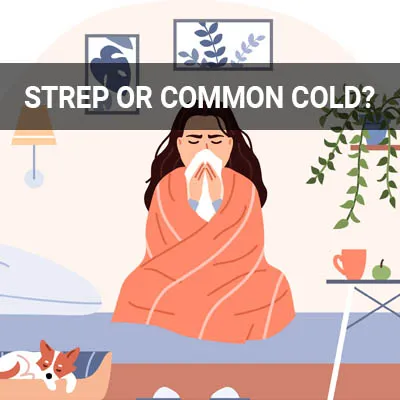Fever Treatment Round Rock, TX
Primary care practitioners can provide fever treatment to reduce symptoms and help a patient's body temperature return to normal. It can be concerning when a fever lasts longer than expected or begins to spike without warning. Proper treatment can reduce the risk of any long-term complications from fever, such as dehydration or the spreading of infection.
Fever treatment is available at Viva Health Clinic in Round Rock and the surrounding area. It is crucial to seek treatment if a severe fever develops in a toddler or young child. Call us today at (512) 243-5872 to schedule an appointment or to learn more about our services.
Understanding Fevers
Fevers turn on the body's immune system and are one of the body's protective mechanisms. This elevation in body temperature is more than just a sign of illness or disease. It triggers cellular mechanisms that make the immune system fight against the virus or bacteria.
While 98.6°F was considered the average body temperature, the normal range is from 97°F to 99°F. A fever is generally defined as a body temperature above 100.4°F. Low-grade fevers range between 100.4°F and 102.2°F, while a fever above this temperature is considered high-grade.
“Fevers turn on the body’s immune system and are one of the body’s protective mechanisms.”
Causes and Symptoms of a Fever
Understanding why fever occurs is essential to proper treatment. In some instances, the cause of fever is quite evident. For example, the patient may be suffering from a heat stroke or have recently received a vaccination. However, fevers can often occur seemingly out of nowhere and with little to no warning signs. In these instances, the cause is likely either a bacterial or viral infection. Common causes include:
- Bacterial infection
- Cancer
- Heat exhaustion
- Inflammatory conditions, such as arthritis
- Reaction to a medication
- Vaccinations or immunizations
- Viral infection
The ability to recognize fevers is helpful for early intervention and treatment. Fevers typically occur alongside a combination of chills, dehydration, headache, irritability, muscle aches, and sweating. Parents and caregivers should take extra note of these symptoms, as children and incapacitated individuals are often unable to express experiencing such symptoms verbally. Though a warm forehead is often a telltale sign of fever, it is not always the most reliable on its own.
“Fevers typically occur alongside a combination of chills, dehydration, headache, irritability, muscle aches, and sweating.”
Fever Treatment Options
Most fevers will resolve themselves in a few days. The infection type will determine how long a fever lasts and if it recurs. However, people who have a fever that lasts longer than three to five days or does not respond to fever-reducing medications should seek professional medical intervention. A primary care practitioner can help patients control their fever and minimize their symptoms. During the appointment, the practitioner will ask the patient about their medical history and symptoms. They will also perform a physical examination, take the patient's temperature, and sometimes even order tests to determine the cause of infection. The practitioner will then make a medical diagnosis and develop a treatment plan that best fits the patient's needs.
Medication, both over-the-counter and prescription, is the most common form of fever treatment. Popular over-the-counter fever reducers include acetaminophen and ibuprofen. Patients with fever caused by bacterial infections may also be prescribed antibiotics for their condition. Similarly, those with fevers caused by viral infections may be prescribed antivirals for their condition. Some home remedies may also help reduce fever, regardless of its cause; these involve getting a proper amount of rest, staying hydrated, and wearing light clothing.
“Medication, both over-the-counter and prescription, is the most common form of fever treatment.”
Check out what others are saying about our primary care practitioner services on Yelp: Fever Treatment in Round Rock, TX
How To Prevent a Fever
The factors that cause fever can sometimes be unpredictable and happen for no particular reason. Still, there are certain precautions patients can take to minimize the risk of developing an infection. These involve practicing proper hygiene, maintaining a safe distance from those who may be sick, getting enough rest, and staying hydrated.
Infections are passed on through germs. Thus, it is crucial to reduce exposure to germs whenever possible. Patients can do this by washing their hands several times a day, sneezing into their elbows instead of their hands, and avoiding touching the face. Distancing oneself from sick individuals until their symptoms pass is also crucial to prevent transmission.
“The factors that cause fever can sometimes be unpredictable and happen for no particular reason.”
Questions Answered on This Page
Q. Are there any medications that can help relieve a fever?
Q. How does one prevent a fever?
People Also Ask
Q. What are the symptoms of strep throat?
Q. Why should I go to my primary care practitioner for common cold and flu treatment?
Frequently Asked Questions
Q. Are antibiotics helpful treatment for all types of fevers?
A. Antibiotics are only effective against bacterial infections. Viral infections are best treated with antivirals or other medications. Over-the-counter medicines and home remedies are typically sufficient to reduce fevers that are not caused by bacterial or viral infections.
Q. Are fevers beneficial to my health?
A. Fevers are essential to recovery from an infection. This is because certain parts of the immune system work best at higher temperatures. However, a temperature that rises too quickly can suggest that something else is wrong.
Q. When is it okay to treat a fever at home?
A. Most fevers can be treated at home and managed with over-the-counter medication, rest, and proper hydration. However, people with a fever that becomes intolerable or rises above 102°F should seek professional medical treatment to avoid any complications. It is also essential to seek medical assistance whenever a young child or toddler suffers from a fever.
Q. What is considered a "normal" fever?
A. A normal fever is a low-grade fever. This rise in body temperature does not usually require medical attention is typically a fever under 102°F. However, people with a fever that causes severe discomfort and excessive symptoms should consider seeing a primary care practitioner for treatment.
Q. How often is too often to experience a fever?
A. People who experience frequent fevers without viral or bacterial infection or environmental causes may have an underlying health condition. Chronic fevers can be a cause for concern, and people should seek out medical attention promptly. Fevers due to known reasons, however, should not be alarming.
Start Feeling Better – Visit Us Today
By visiting us as soon as possible, our team can help get you the professional treatment you need. Instead of waiting around and allowing the symptoms to get worse, we can provide you with treatment options.
Definition of Medical Terminology
Call Us Today
People experiencing a persistent fever or severe accompanying symptoms can benefit from seeking fever treatment from a primary care practitioner. Our team at Viva Health Clinic is here to help. Call us today at 512-243-5872 to schedule an appointment or to learn more about our services.
Helpful Related Links
- American Journal of Medicine. American Journal of Medicine. 2023
- American Medical Association (AMA). American Medical Association (AMA). 2023
- Centers for Disease Control and Prevention. Centers for Disease Control and Prevention. 2023
- National Institutes of Health. National Institutes of Health. 2023
About our business and website security
- Viva Health Clinic was established in 2023.
- We accept the following payment methods: American Express, Cash, Discover, MasterCard, and Visa
- We serve patients from the following counties: Williamson, Travis, McLennan
- We serve patients from the following cities: Pflugerville, Austin, Kyle, Waco, Leander, Cedar Park, Bastrop, Round Rock, Georgetown, Hutto, Liberty Hill, and Taylor
- National Provider Identifier Database (1104428416). View NPI Registry Information
- Norton Safe Web. View Details
- Trend Micro Site Safety Center. View Details
Back to top of Fever Treatment










